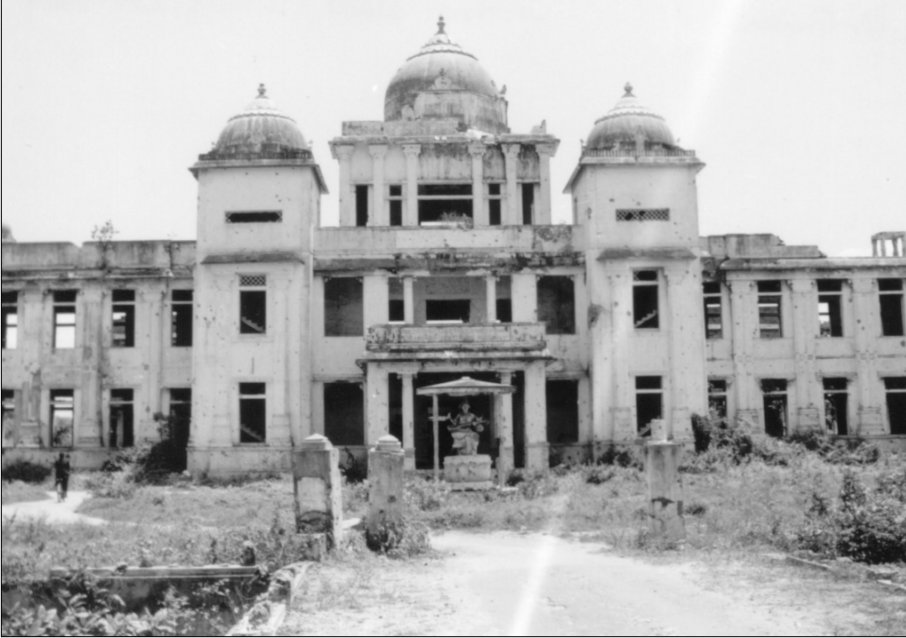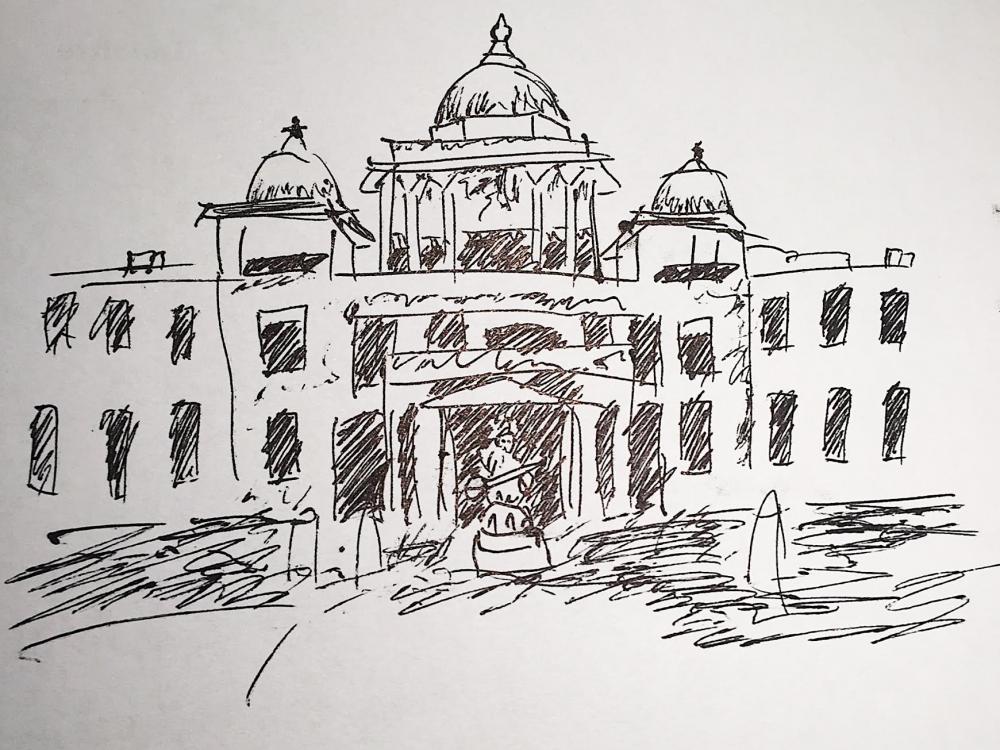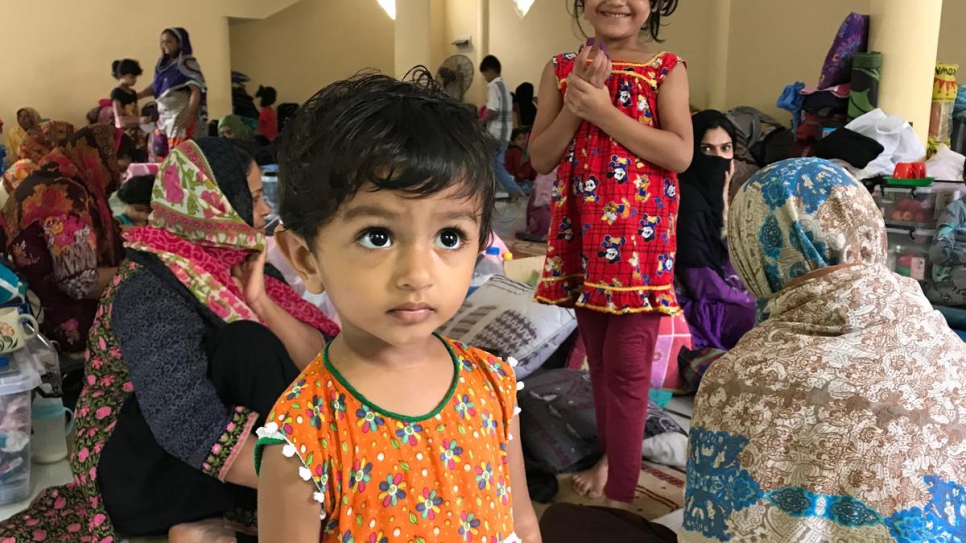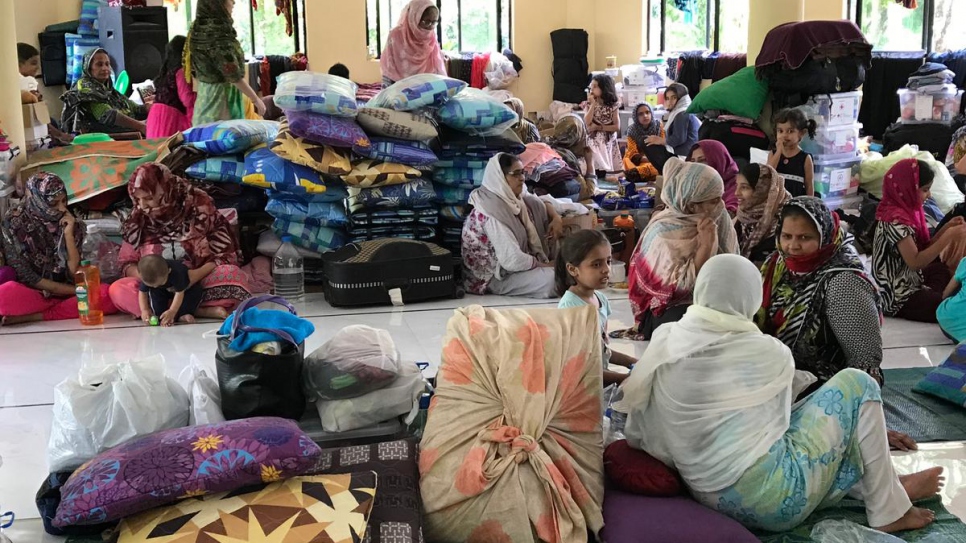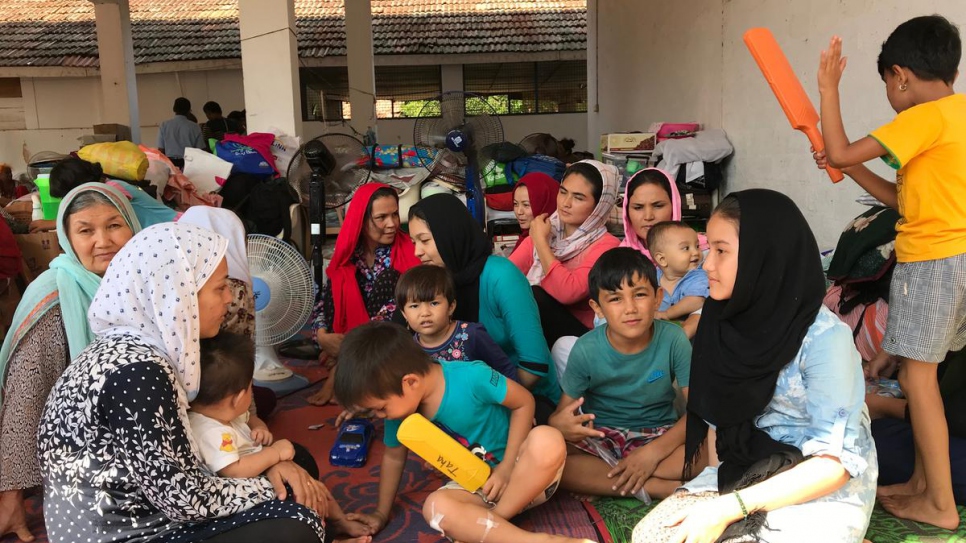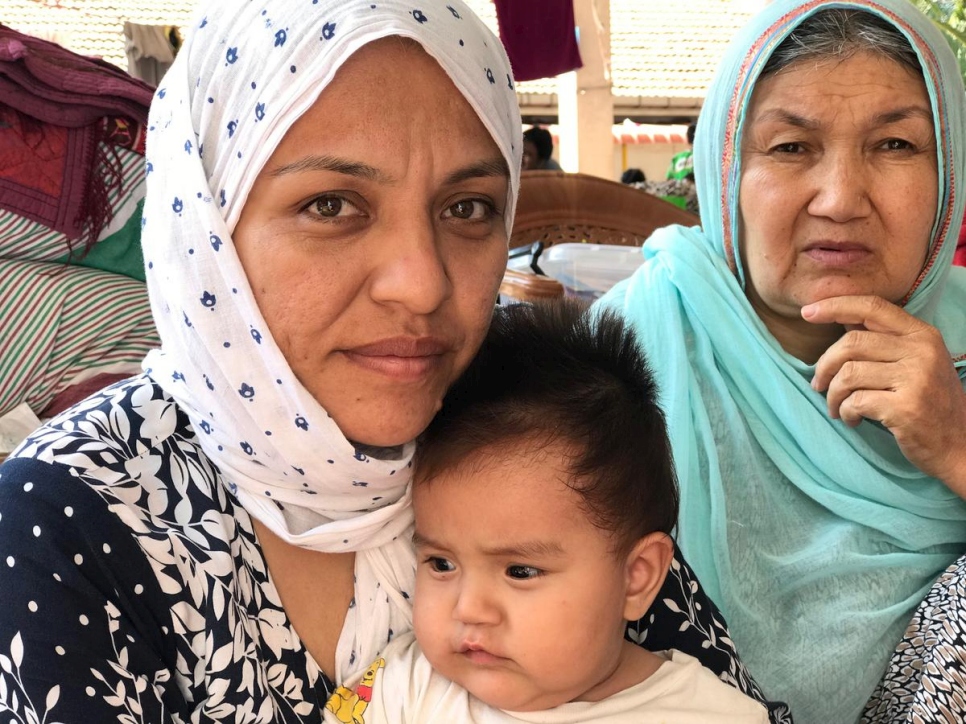 The Yahapalanaya project begun by Ven. Sobitha has its problems; the chief among the problems being the President, who has backed out of it – Pic by Shehan Gunasekara
Upul’s politics
The Yahapalanaya project begun by Ven. Sobitha has its problems; the chief among the problems being the President, who has backed out of it – Pic by Shehan Gunasekara
Upul’s politics
 Saturday, 1 June 2019
Saturday, 1 June 2019
Dr. Upul Wijewardena has been in the habit of making interventions with wrong speech on politics. While his occasional deliberations on Buddhist philosophy may be regarded as sincere articulations, irrespective of concerns of worth, his political comments are never driven by the desire to awaken peoples’ minds with truth and wisdom in times of serious crisis.
It is important that persons who have reached the heights of their profession and earned the community’s respect do their best to offer guidance towards a path that is socially sustainable. This is because people are ready to listen to the latter. Leadership from civil society is as important as leadership from the arena of politics.
Unfortunately, Sri Lanka desperately lacks proper civil society leadership. Everyone seems caught up –directly and indirectly – in the network of narrow political greed. Look at Professor G.L. Peiris! Such an eminent intellectual, on par with the best in his field in the world. GL is ready to bend and twist, cringe and recoil, according to the dictates of opportunism. He cuts a pathetic figure going behind Mahinda Rajapaksa – such an incorrigibly amoral leader.
Dr. Upul Wijewardena trades on his still-glowing fame as a once-successful surgeon who has served the community with distinction. But one cannot for long keep diluting one’s laurels in the way he does.
Just take a look at the recent piece he wrote for one of our national dailies (The Island 29/05/19). His writing has a distinct pro-Rajapaksa tilt, and his reasoning is skewed to that end. The Island has an ownership burden, and I don’t blame the editor.

We have observed many a celebrity doing marketing (kade yanawa) for the Rajapaksa return. There is evidence that the latter have been beneficiaries in one way or another from the Mahinda Rajapaksa largesse. Hence, I would regard these guys as merely singing for their supper. I haven’t done research on Upul, but his manifestations are suggestive. His distortions of truth are irresponsible; the selectiveness in presentation is offensively and odiously obvious.
‘Yahapalanaya is a curse’?
I wonder if Upul has adopted GMOA President Anuruddha Padeniya’s alleged psychiatric formula to assess that the Yahapalanaya Government is treacherous. The point is, I challenged Padeniya to produce that formula, but he didn’t. Upul Wijewardena adds that the current Yahapalanaya Government is a curse.
I recall Anuruddha Padeniya making the astounding claim that the science of psychiatry has a methodology to identify treasonous behaviour. Padeniya, now in a hot spot, having had to face court over charges of defamation, took off the cap of the man of science when he uttered that. He has also been named by many as a professional doing marketing for Yahapalanaya. His GMOA became such a nuisance when they kept challenging the Government’s right to develop trading policy by entering into international trading arrangements. At that time, it seemed that the GMOA was doing anything but looking after the sick.
Two years have elapsed, but Padeniya has not come out with his model. Propagandists need no proof. They prefer just making one-liner attacks and going silent, imagining that the nation is in shock over their charges.
This is exactly what Upul has done in the article under reference. He bursts out with a damning verdict but gives no build-up of any argument to establish his allegations. Such assertions are known as ‘diatribes.’ The Cambridge Dictionary defines diatribe thus: ‘an angry speech or piece of writing that severely criticises something or someone.’ In other words, it is the attack that matters and not the substantiation of that. It is a rant bordering on abuse.
Instead of furnishing an argument, Upul Wijewardena cites an editorial in the Island, which states: “Worse, the President stands accused of having acted in violation of the Constitution. The Prime Minister and the Cabinet allegedly enter into international agreements without the President’s knowledge. Vital pacts the Government signs with foreign powers are not presented to Parliament, and thus the people in whom sovereignty is said to reside are kept in the dark.”
Who acted in violation of the Constitution, Upul? Yes, it’s the President. However, President Sirisena is no longer in the Yahapalanaya camp; he sabotages it. Besides, Mahinda Rajapaksa and his party men participated in that shockingly disgusting constitutional coup. This cabal ran a fake Government with a fake Cabinet for 52 days, thus causing damage to all Yahapalanaya programs.
Silence over constitutional coup
The question arises here as to why Upul, who is fond of poking his mouth in politics, did not utter a single word of opposition to this dastardly bad move? Wasn’t it such a serious violation that demanded an Upul Wijewardena intervention? The problem is that Upul is selective in his attention.
Thanks to Parliament’s determination to protect the people’s sovereignty, the disgraceful conspiracy was defeated thrice in succession, and the Sirisena-Mahinda cohort had to fold up.
Next, what are the ‘vital pacts signed with foreign powers,’ that aren’t presented to Parliament? Nothing. Can Upul point any out?
Mahinda’s peace
Suffice it to say, asserts Upul, “That Perapalanaya (era before Yahapalanaya), though corrupt, handed over a country at peace to a ‘Yahapalanaya’ that sleep-walked into a terrorist disaster, on top of breaking records for corruption and cover-ups, as well as destroying the image of the country. I am sure Arjun Mahendran is the happiest man on earth today, as the bond scam has got submerged in the torrent of terrorism!”
Okay, let’s take up the question of peace. For four years, this Government brought peace to the country and that was a genuine peace, where freedom-loving persons and trade unions could protest without getting attacked by goons, or without the fear of being bundled up into white vans. That assurance of protection is still prevailing, and nobody need fear hit squads. Journalists, like those in Derana and Hiru, can present any hate news they want, without being butchered to death as Lasantha Wickrematunge was. Had Upul Wijewardena criticised Mahinda or Gota in their time, he, himself, would have been a missing person.
Easter terror
The terror strike that occurred after four years of peace was distinctly different from the LTTE version of terror that Mahinda faced. ISIS terror is being unleashed all over the world, and no country can be at peace as long as this extremism is dealt with internationally. Here, in Australia, we avoid busy places and are very cautious in our daily existence.
Sri Lankan security forces have been very quick in getting to the bottom of this, and hundreds have been arrested. What is more, investigations have revealed that these extremist groups have been in action from the Rajapaksa days, but never caught in radar. Worse still, it is also revealed that under the previous regime, Thowheed Jama’ath had been funded along with the BBS, Mahason Balakaya and Ravana Balaya.
It is also well-known that the counter-attack by Sinhala goons on innocent Muslims had been associated with Pohottuwa politicians. A Pohottuwa man had also laid hand grenades in a school to frighten kids away from coming to school. The sudden and unwarranted release of the BBS goon monk, Gnanasara, by the President sounds nothing but eerie.
Why did Dr. Wijewardena’s focus get away from all these considerations?
Rishad Bathiudeen and the sterilisation doctor
Dr. Upul Wijewardena further says, “Interestingly, the latest gambit of the Minister Rishad Bathiudeen is to throw down the gauntlet to the President and the Prime Minister: he will resign if either of them requests him to do so. Otherwise, support him, or the Government will lose the vital support of him and his henchmen.”
This is a lie. What Minister Rishad Bathiudeen has stated officially is that he wants a fair investigation into the allegations against him. That is what the UNP Government also requests.
These are times when all sorts of false allegations are being flung. The latest to create an uproar was about the Muslim doctor in Kurunegala who is said to have done 8,000 sterilisation operations on Sinhalese women. The Island’s sister paper, Divaina, is guilty of presenting this without proper investigation. The Opposition’s own Kurunegala MP and SLFP General Secretary Dayasiri Jayasekera has publicly expressed his doubts over these charges as, he says, he knows the doctor too well for that. There is a prima facie argument against the charge that it is logistically impossible to carry out such a large number of surgeries without any staff of the hospital being unaware. An investigation has to be done about all these.
The sterilisation canard is something well used by Sinhala extremists – monks and others. Remember when the last riots in Kandy were organised? The narrative about a Muslim hotel serving customers with a sterilisation pill?
As a doctor in medicine, Upul should have referred to this dangerous trend among monk-led Sinhala Buddhist extremists in his political comment. Yet, he refrains from doing so, and even sobs for Galagoda Aththe Gnanasara in the Island piece. Surely, this is relevant to the doctor’s concerns over peace in the island!
The poor Kurunegala doctor has been arrested on other grounds, namely about allegations of “earning excessive money”!
Bond case
Upul says that the Government is ‘on top of breaking records for corruption and cover-ups as well as destroying the image of the country.’ He refers to the Bond case. A Presidential Commission into this case has identified the ‘culprits,’ and a single UNP Minister is not among them. The adverse reference to Ravi Karunanayake is over an ancillary issue. The Commission also did mention that these kinds of transactions had been going on during the Mahinda Rajapaksa Government, too.
Furthermore, the true determination of guilt over this episode has to be done in court and that hasn’t yet been done. Upul knows this. Then why does he distort?
The positive achievements of Yahapalanaya
Dr. Upul Wijewardena’s diatribe remains distinctly so when he totally ignores the positive achievements of the current regime, despite President Sirisena. Our Judiciary is largely a free institution after Yahapalanaya that we can now be proud of. Judges give verdicts without reference to Temple Trees. A Constitutional Council is in force, which assures independence in the appointment of judges and some other key officers. No longer can a Chief Justice be illegally removed in the way done to Shirani Bandaranayake. Accountability and transparency is improving by the day. The latest proposal is to introduce digital procurement procedures. We have the Freedom of Information Act that also confirms accountability.
Next, a considered and professional economic policy framework is in operation to boost entrepreneurial energy and direct foreign investment. The objective is to transform an import-dependent debt economy to an export one. Year 2018 saw the highest recorded exports in the country. Gamperaliya and Private Enterprise Sri Lanka are very good projects now in force. The huge debt repayments necessitated by Rajapaksa spending are under control.
Conclusion
The Yahapalanaya project begun by Ven. Sobitha has its problems; the chief among the problems being the President, who has backed out of it. Other problems are sourced in low Government numbers in Parliament. If the forthcoming elections can help clear these issues, our campaign for Yahapalanaya will be a complete success and we would achieve systemic change in Government, which after all is the purpose of Yahapalanaya.
(The writer can be reached via sjturaus@optusnet.com.au.)
